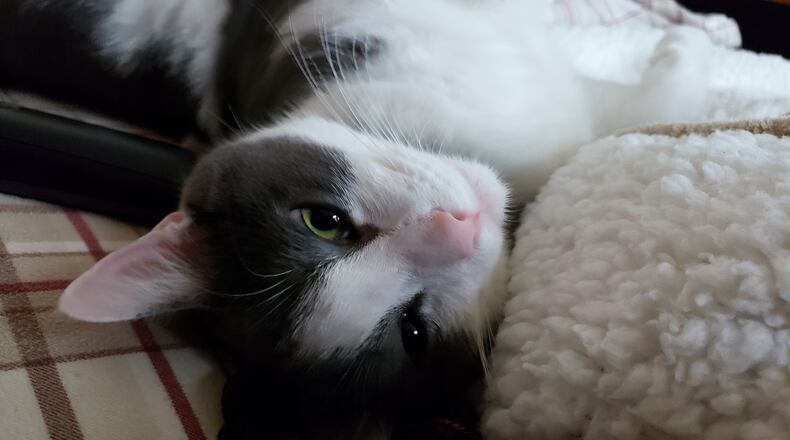Ed, my husband of many years, doesn’t use an alarm clock to wake him up most mornings. Pip, our 1-year-old cat, has replaced Ed’s alarm clock.
Pip knows that once Ed is up, he will get his breakfast. Similarly, around 5 p.m., Pip starts jumping on my lap, rubbing up against me, doing anything that will make me stop what I’m doing and fill his bowl with crunchy chicken kibble.
According to Matt Sornich at petmed.com, there isn’t a lot of research in this area. He did write that “...there is some evidence that cats can discriminate between different lengths of time.”
Sornich discussed one study where researchers trained cats to eat from one of two bowls based on how long they were held in a cage before being released to eat. The cats knew the difference between holding periods of 5, 8, 10 and 20 seconds. That ability, researchers said, implies that cats may have “an internal clock that is responsible for assessing the duration of events.”
Since Ed is working from home he doesn’t have to get up until 7 a.m. Pip and our Lab, Teddy, get breakfast at that time. Pip doesn’t recognize daylight saving time. The determined feline is jumping on and off the bed, bellowing and scratching our bedroom rug, every day, all year long.
Cattention.com has an explanation. Cats are not good at exact measurements, but they do have guesses, clues and cues.
Pip has learned that in the afternoon, after Ed takes Teddy for a walk, he’ll get to walk around the backyard. The feline hangs out in our mud room for the two to return.
The cat knows I’ll play with him when I get out of bed most mornings and before I go to sleep most evenings. During those times, he’ll station himself next to his toys so I can’t miss him as I walk by.
Pip knows Ed feeds him in the morning and I feed him at night. According to the cattention.com, our cat has a generalized sense of the ebb and flow of our “family’s daily activities.”
This is why our cat wakes up Ed five to 10 minutes before or after 6 or 7 a.m. and starts to bother me around 5 or 6 p.m. about his dinner. You can set your daily calendar to his meals and activities but not the exact time for each.
Finally, catttention.com offers the following advice: Since Pip is the most comfortable following a daily routine and can become stressed when things happen outside of his usual habits, it is important to feed/play with him accordingly.
So Ed getting to sleep until 7 a.m. during the fall and winter months just isn’t going to happen. I’m just thankful it’s Ed on morning feeding duties and not me.
And, Greg, keep those cartoons coming.
For an example of a cat’s ideal daily schedule check out:

